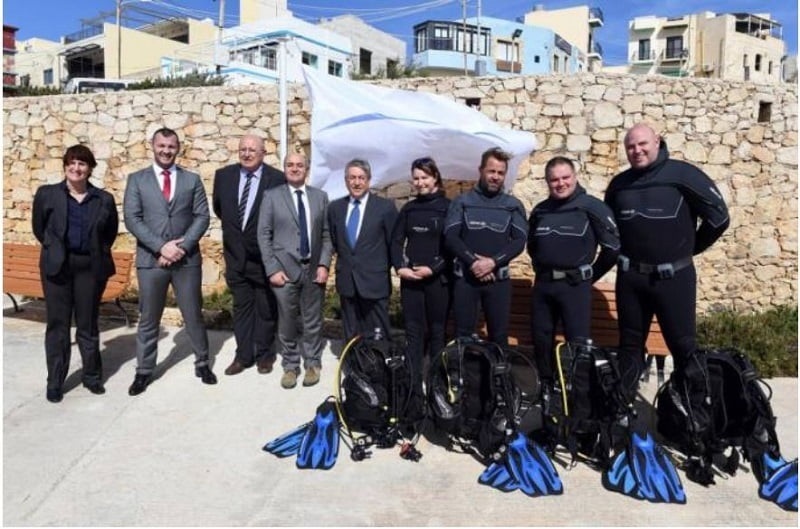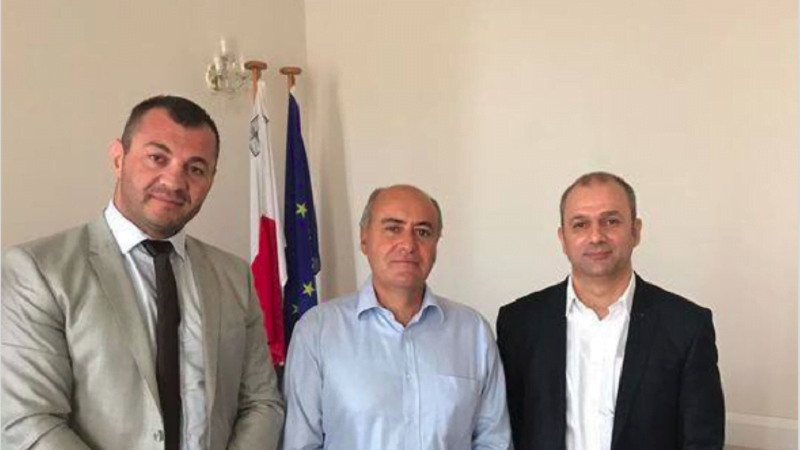A Freedom of Information request filed on the communication between Environment Minister Jose Herrera and the representatives of the White Flag scheme has been rejected on the grounds that “a search through a large number of documents would be required”.
The request was to obtain a copy of correspondence between Environment Minister Jose Herrera and the organisation behind the White Flag scheme. The refusal came a week after the (extended) deadline allowed by law, and only after several reminders sent.
The request was made on 20 June, after The Shift revealed the Croatian behind the scheme, Kristijan Curavić, was facing charges of fraud in his home country for a similar project.
Minister Herrera has stated that he had not conducted any due diligence on the individuals he had backed and whose idea he had promoted as Environment Minister, saying simply he had not entered into any contractual agreements with the organisation and so “he was not defrauded”.
Yet, the permit given for the first flag and cleanup of the seabed in Wied Iz-Zurrieq in March 2018, states that Whiteflag International is “conducting this project together with the Ministry for Environment, Sustainable Development and Climate Change”.

Environment Commissioner Karmenu Vella, Environment Minister Jose Herrera, CEO of ERA Louise Spiteri, and Kristijan Curavić at the White Flag ceremony at Wied iz-Zurrieq in March last year.
The organisation also refers to the project as one implemented “in collaboration” with the Ministry.
The Freedom of Information request was filed to be able to verify the facts. It was first extended by 20 days, due to the “large number of documents” and the need to “consult third parties” before giving out any documentation. That deadline expired on 19 August. A week later, and after reminders sent, the request was refused because it entailed too much work.
“Such an exercise would substantially and unreasonably divert the resources of the Ministry from its other operations,” the reply stated.
Last week, The Shift reported that a similar Freedom of Information request revealed that while Gozo Minister Justyne Caruana had told parliament that €7,776 had been spent on two White Flags, in actual fact the Ministry had committed €29,000 of taxpayer money to one flag at Mgarr ix-Xini.
The contract revealed by The Shift also showed that on top of the €29,000 for the flag, the Gozo Ministry also agreed to cover “all-inclusive accommodation” for all those involved.
The Shift has been pursuing this story since late last year, ever since a source within a private firm sponsoring the project revealed they had paid €25,000 for a White Flag with dubious credentials, and that the money had been transferred straight to an account in Zagreb, Croatia.

Part of the conversation with the source on the money paid for White Flags to a Zagreb account.
Yet, the request to check whether the Environment Ministry had entered into contracts with an individual accused of fraud was deemed “frivolous or vexatious or that the information requested is trivial”, according to the reply received that referred to 14 (f) and (h) of the Freedom of Information Act.
Last week, the Seychelles government withdrew plans to have 40 White Flags in the country based on The Shift’s reports. Private sponsors encouraged to support the project have also told The Shift they no longer had a working relationship with the organisation and their logos were removed from the project’s website. His Maltese partner also abandoned the project.
This news portal has revealed that Curavić used the names of celebrities to sell his idea of a ‘plastic-free’ marine environment to win over government support. The Shift contacted the Prince Albert II of Monaco Foundation and Bianca Jagger – the founder of the Bianca Jagger Human Rights Foundation and a Council of Europe goodwill ambassador — to verify their endorsement of Curavić’s project. They denied their involvement.
The Environment Minister featured in the organisation’s promotional video, then joined by a line up including European Commissioner Karmenu Vella, former President Marie Louise Coleiro Preca, Health Minister Chris Fearne, as well as the Gozo Minister.
The White Flag is meant to denote a ‘plastic free’ marine environment around beaches. The organisation committed to a clean up before the flag was raised, and regular monitoring and reports. Yet, the programme has no international accreditation by recognised bodies.
Curavić has denied all accusations, saying they were part of “a systematic and coordinated attack intended to get at the Maltese government”.












